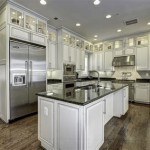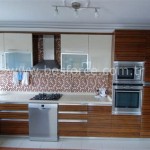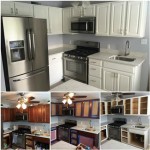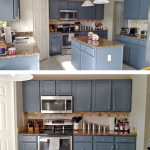How to Craft a Concrete Kitchen: A Comprehensive Guide
The allure of concrete kitchens lies in their unparalleled durability, sleek aesthetic, and thermal mass properties that regulate temperature. Constructing a concrete kitchen may seem daunting, but with meticulous planning and careful execution, you can achieve a stunning and functional space. This guide will delve into the essential aspects to help you navigate this project successfully.
Planning and Design
Before embarking on the installation, it's crucial to meticulously plan your kitchen layout, including appliance placement and cabinet design. Consider the flow of movement and optimize space utilization. Concrete countertops require specific dimensions and reinforcements, so consulting with a professional is advisable.
Materials
The foundation of a concrete kitchen is the materials used. Portland cement serves as the binding agent, while fine aggregate (sand) and coarse aggregate (gravel) provide strength and texture. Admixtures, such as plasticizers, enhance workability and durability. Reinforcements like steel rebar or fiber mesh are essential to prevent cracking.
Formwork
The formwork, typically made of wood or specialized molds, defines the shape of the concrete components. It must be sturdy enough to withstand the weight of the concrete and provide proper support during curing. Precise measurements and a level surface are vital for a flawless finish.
Mixing and Pouring
Thoroughly mix the concrete ingredients until a uniform consistency is achieved. Pour the concrete into the formwork gradually, avoiding air pockets. Vibrate the concrete to release trapped air and ensure a dense, solid structure. Use a screed or trowel to level and smooth the surface.
Curing and Finishing
Proper curing is essential for the strength and durability of concrete. Maintain a moist environment for the first few days by covering the concrete with plastic or burlap and periodically spraying water on its surface. Once the concrete has gained sufficient strength, you can apply a sealer to protect it from stains and enhance its aesthetic appeal.
Additional Considerations
For a seamless integration with the rest of the kitchen, consider the following additional factors:
- Lighting: Proper lighting is crucial for functionality and ambiance. Plan for under-cabinet lighting, task lighting over work surfaces, and ambient lighting for overall illumination.
- Appliances: Select appliances that complement the concrete aesthetic and functionality. Built-in appliances can create a sleek, streamlined look.
- Hardware: Cabinet hardware, such as knobs and pulls, should be durable and match the overall design scheme. Consider using concrete-toned hardware for a cohesive look.
- Decor: Accessories and decor can enhance the personality of your concrete kitchen. Incorporate natural elements like wood or greenery to soften the industrial vibe.
Conclusion
Building a concrete kitchen requires meticulous planning, careful execution, and an appreciation for the unique qualities of this material. By following the steps outlined in this guide, you can create a durable, stylish, and truly exceptional kitchen that will stand the test of time. So, embrace the versatility of concrete and embark on the journey to craft your dream kitchen.

Manual Construction Techniques Building Concrete Kitchen Cooking Table

Alt Build Blog The Masonry Kitchen Concrete Construction Brick

How To Building And Install Concrete Kitchen Table Modern With Ceramic Tiles

How To Build A Concrete Countertop

Cocina De Cemento Concrete Kitchen Tiles Table

Concrete Countertops Pros Cons Diy Care Network

Diy Concrete Countertop Gray House Studio

Diy Concrete Countertops Part 2 Of The Total Kitchen Series

How To Build A Concrete Countertop For Outdoor Kitchens The Money Pit

Fast Diy Concrete Countertops In A Day Houseful Of Handmade
Related Posts








